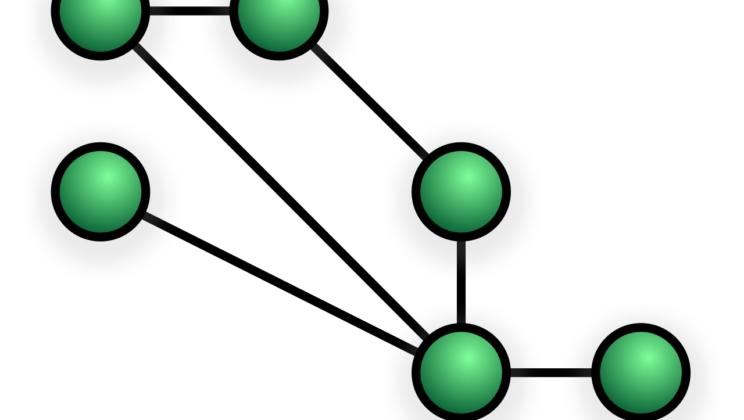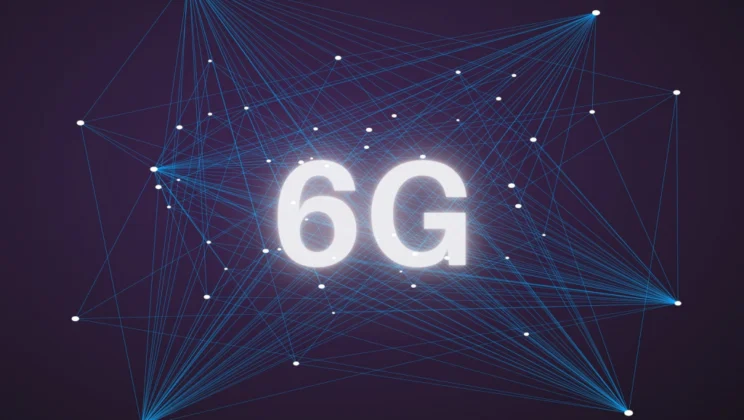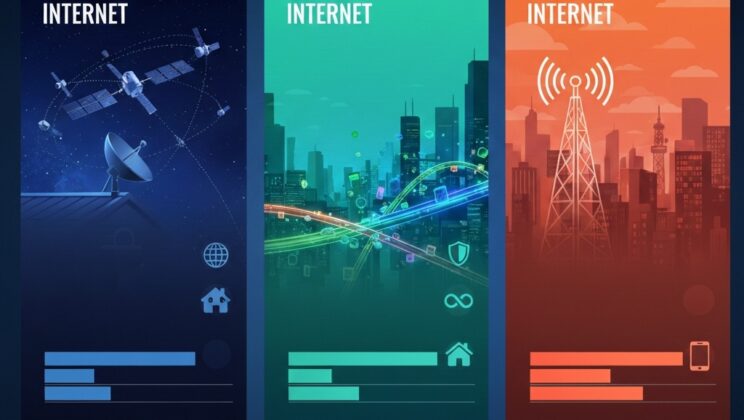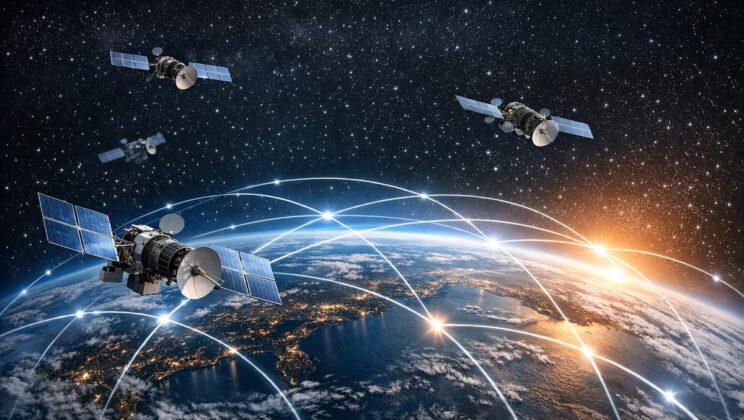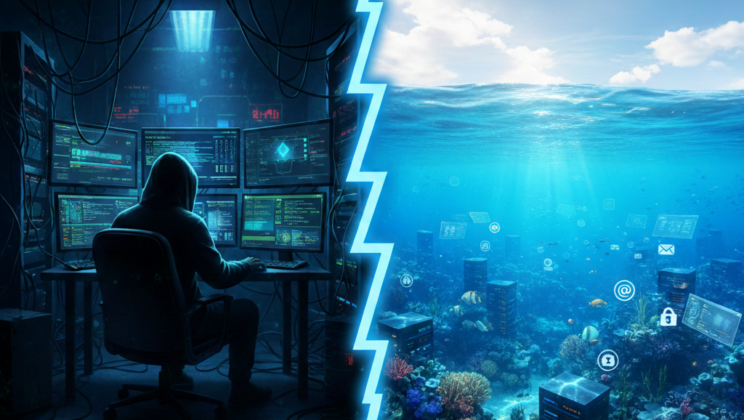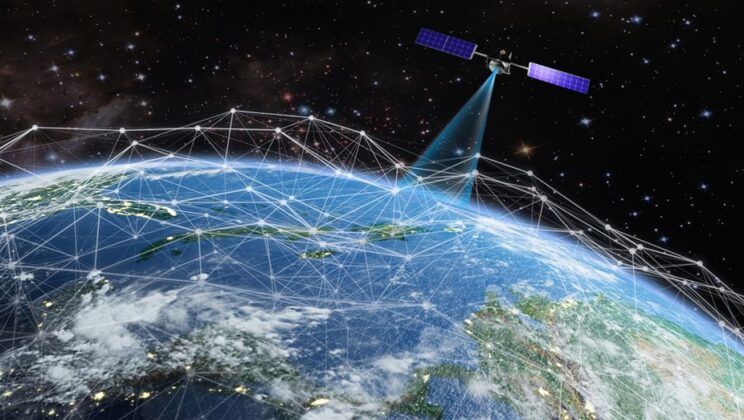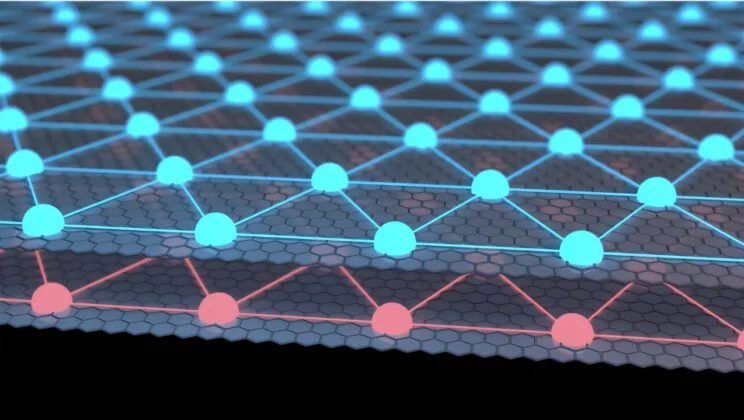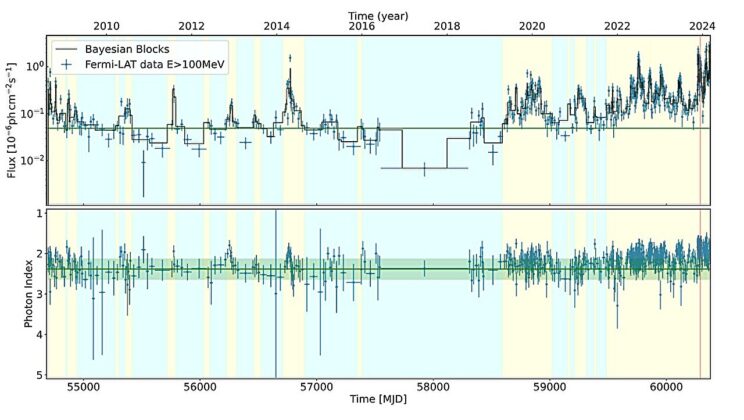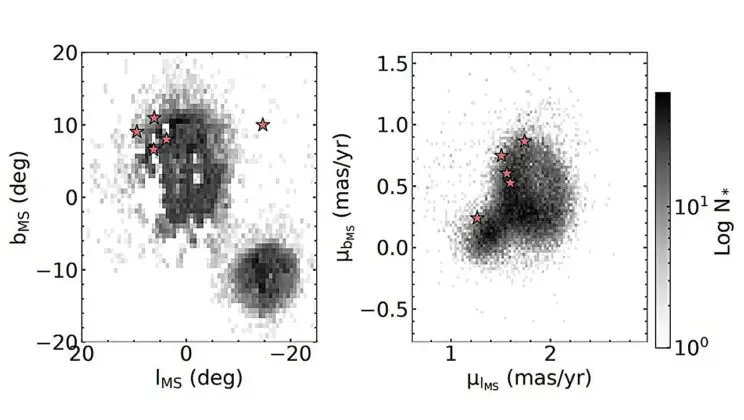Every time a cat launches itself into a cardboard box and the moment reaches your screen seconds later, something quietly…
The Dead Internet Theory: Are Bots Already Running the Web?
Late at night, when the scrolling becomes automatic and the glow of the screen feels heavier than usual, a strange…
Mesh Networks: How Communities Build Their Own Internet
The internet is often imagined as something distant and immense, a vast cloud owned and operated by powerful corporations, humming…
The 6G Race and the Restless Human Drive to Go Further
Long before most people finished understanding what 5G truly meant, scientists, engineers, and policymakers quietly began asking a dangerous and…
Satellite Internet vs. Fiber vs. 5G: Which One is Right for You?
The internet is no longer a luxury or a background convenience humming quietly behind daily life. It is the nervous…
What is Satellite Internet? Everything You Need to Know
Satellite internet is one of humanity’s boldest attempts to defeat distance. It is the idea that information—our words, images, voices,…
Dark Web vs. Deep Web: What’s Actually Hiding in the Unindexed Net?
The internet most people experience each day feels vast beyond comprehension. A few taps on a phone summon news from…
Starlink and Beyond: Is Satellite Internet the End of the Digital Divide?
For decades, the internet has been described as humanity’s great equalizer, a force capable of dissolving borders, amplifying voices, and…
The Physical Internet: The Giant Underwater Cables Keeping the World Online
When you send a message across the world, watch a live event from another continent, or scroll endlessly through photos…
Meet the 5 Centimeter Amphibian That Outlasted the Dinosaurs for Millions of Years
One hundred and fifty million years ago, the Late Jurassic world was loud with giants. Dinosaurs dominated the land, their…
Meet the Million Year Old Kākāpō Relative That Might Have Actually Flown
Near Waitomo on Aotearoa’s North Island, a quiet cave has been holding its breath for a million years. Long before…
Scientists Finally Found the Impossible Matter That Is Both Solid and Liquid
Cooling something down usually feels like a predictable journey. A gas settles into a liquid. A liquid stiffens into a…
Scientists Found the First Liquid That Ever Existed in Our Universe
In the very first instants after the universe began, there were no atoms, no protons, no neutrons, and no familiar…
This Sleeping Black Hole Suddenly Exploded Into the Most Powerful Gamma Ray State on Record
For more than a decade, a distant cosmic beacon sat in near silence, its immense power hidden behind a calm…
The Universe Was in a Huge Hurry to Grow Up and This New Discovery Proves It
In the deep darkness of the early universe, only about a billion years after everything began, something astonishing was already…
James Webb Reveals the Universe Grew Up Much Faster Than We Ever Imagined
The light arriving at the James Webb Space Telescope today began its journey almost as soon as the universe itself…
The 15 Minute Tornado Warning Could Soon Become a Relic of the Past
On the Great Plains, the sky has a way of keeping secrets until the very last moment. A calm afternoon…
Scientists Discovered the Secret Tech of Early Humans Living 160,000 Years Ago
For decades, the story of early humans in East Asia was told in muted tones. The region was often portrayed…
New Math Suggests Dyson Bubbles Can Stay Stable Using Only Gravity and Starlight
For as long as humans have looked up, the stars have invited imagination. Somewhere in that darkness, astronomers wonder, might…
Astronomers Have Finally Seen the Invisible Scaffolding That Shapes the Cosmos
For most of human history, the universe seemed built only from what our eyes could catch. Stars burned, galaxies spun,…
Scientists Finally Discovered the Elusive Carbon Stars That Were Missing From Our Closest Galactic Neighbor
For decades, astronomers have sifted through the faint fingerprints of stars, searching for the rare ones that carry stories from…
Scientists Unearthed a 1,500-Year-Old Mass Grave That Reveals the Moment a City Stopped Breathing
“A plague is upon us” may sound like a line from legend, but in ancient Jordan it was a lived…


